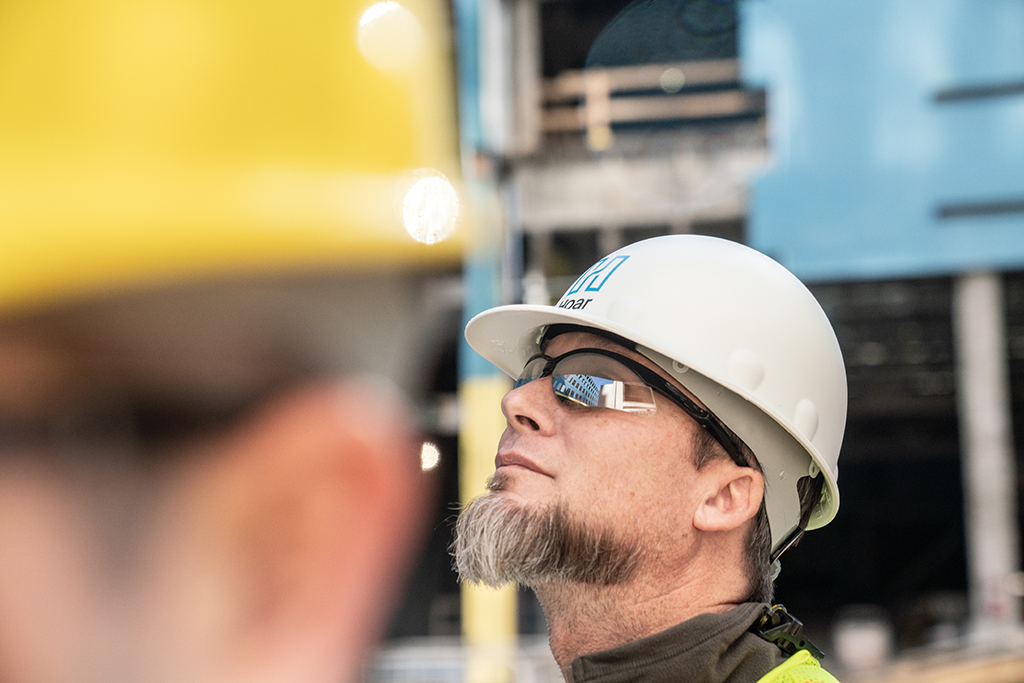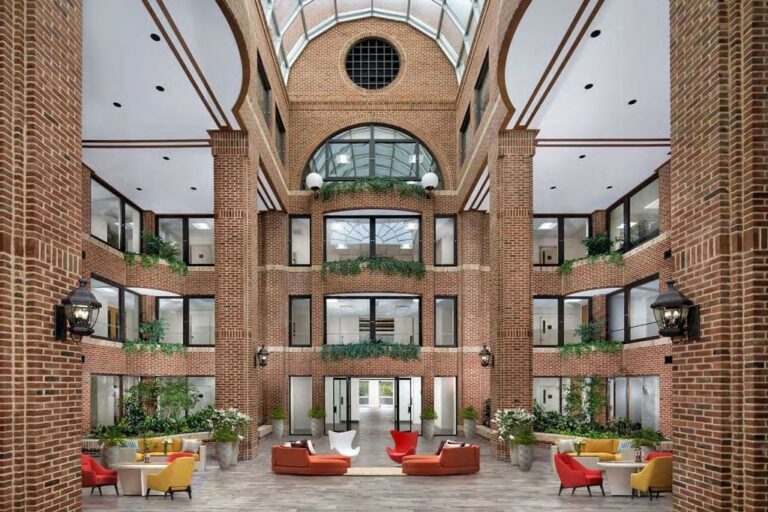
The lines between market sectors continue to get a little hazier all the time. While there are still plenty of single market-specific buildings like apartment towers, hospitals, and office buildings, there’re also towers with retail on the first floor, hotel rooms on the next 10 floors, and a few floors of condos on top. Or retail developments that feature medical offices, retail tenants, restaurants, and a post office all in the same retail building. We’re also seeing owners embracing emerging construction methods and techniques — from mass timber to modular construction — on a variety of types of developments. Suffice to say, a run of the mill, standard project is becoming less and less common. Which leaves owners with the question, “Who has the right experience to build my project?” Sure, you can scour over resumes and try to match like projects with yours. Or you could match contractor experience to your top project priorities. Each market sector comes with its own specific challenges and intricacies. Let me walk you through a few to explain what I mean.
Healthcare
Your Priorities: Attention to Detail, Excellent Communication, No-Stress Inspection Process
Healthcare builders have to be expert-level detail orientated. From infection control to installing life-saving utilities, there is absolutely no room for error. In addition, they have to be capable communicators. Whether it’s collaborating with the medical providers to ensure the operating room meets their needs or updating hospital staff on progress, they have to build relationships with dozens of stakeholders on every project. And the inspections. Healthcare project teams are highly experienced in working with state and local officials to inspect the inner workings of their projects. In fact, our healthcare teams kept our healthcare projects moving forward at the height of the pandemic by embracing technology and applying their experience to hold virtual inspections with multiple officials.
Higher Education
Your Priorities: Successful Renovation of Occupied Space, Traffic Control, Tight Site Solutions
Unless you’re building a brand-new campus, higher education builders are most likely working on active, busy campuses. These projects are exciting and rewarding but involve their own challenges — from limited parking and site access to thousands of students milling around your site all day long. Campuses are dynamic — there’s always something going on. Whether it’s Parent’s Weekend or a campus-wide concert, project teams need to be prepared and able to essentially shut construction down, pull everything inside the fences, and help clients make their campus look clean and beautiful. All those challenges require meticulous planning and flexibility. Higher Education builders need to be in contact with multiple stakeholders to know what events are happening on campus and how they need to adjust their work. They have to identify and coordinate access to the jobsite without negatively impacting students’ and faculty’s ability to get around campus. In addition, a lack of laydown area isn’t unique to higher education projects, but when combined with the accessibility issues we discussed above, it can make getting materials to your jobsite extremely difficult. This challenge requires creative solutions like offsite prefabrication and just-in-time delivery.
Multifamily
Your Priorities: Speed to Market, Quality Control, Compressed Construction Schedule
A defining characteristic of multifamily development is repetition — 20+ floors of hundreds of rooms with speed to market in mind. That’s why successful residential builders have embraced lean construction methods that allow multiple trade partners to schedule work in the most efficient way possible and take advantage of the benefits of off-site prefabrication. The sooner a project is finished, the sooner clients can start renting spaces and see a return on their investment, so they need project teams who are skilled at shaving time off the schedule and streamlining the repetitive nature of the work. In addition, multifamily project teams have to be quality control experts. With hundreds of rooms to get inspected and turned over, their quality control plan must be organized and thorough to ensure finished work doesn’t get damaged later. They also need to be able to give owners peace of mind that they won’t be fielding calls from tenants over quality issues a year or two down the road.
Industrial
Your priorities: Large Site, Cost and Schedule Certainty, Equipment Installation
Of all the market sectors we’re talking about, industrial projects have the most potential for variety. Whether you’re building a big box distribution warehouse or a heavy automotive production plant — industrial clients need a builder who can be flexible and keep every aspect of the project on schedule and moving forward, no matter what comes up. Let’s look at one factor that’s critical to any industrial projects — sitework. It takes a big site to accommodate an industrial project, and that usually means there is extensive sitework required before construction can begin. From unstable soil to brownfield sites, industrial builders have to start their plan for sitework in the initial preconstruction stage or earlier so they can get a geotechnical report, identify what the soil conditions are, and determine how to accurately include all sitework into the budget. Any project team that waits until groundbreaking to thoroughly investigate and plan sitework is putting the entire project schedule and budget at risk. Sitework is one of the most commonly underestimated phases of a project and can be one of the most expensive if overlooked, so a builder who can successfully manage your sitework all the way from early precon to groundbreaking can provide improved cost certainty at a vital stage of the project.
Let’s look closer at flexibility — if you’re developing a light industrial warehouse and secure a tenant halfway through construction, you need a builder who can quickly collaborate with the tenant and adjust the construction plans to their specific needs. Or, if you’re a company who is constantly evolving and updating their procedures and processes, you may need your builder to react to multiple revisions to the plans during the lifespan of the project to ensure the final building is as up-to-date and state-of-the-art as possible. In addition, if your project features unique, complex machinery or equipment — industrial builders have to have experience handling deliveries and installing sensitive and expensive equipment. If there are long lead times or supply shortages, you need a builder who has already identified the challenges early enough in preconstruction to avoid a delay to your project. Managing long lead times, collaborating with tenants, and reacting to changing technologies are qualities that are critical across multiple market sectors — from healthcare to retail.
Retail
Your priorities: Coordination of Multiple Contractors, Busy Site, Schedule Management
Retail contractors, if successful, have to be masters of communication and coordination. Once the retail structure or individual shells are built, they have to work with several – sometimes dozens depending on the size of the project – tenant contractors to coordinate individual, specific interior build-outsWh. A construction site can quickly become crowded and inefficient with multiple tenant contractors and their trade partners all working towards completion at the same time. A good retail builder has the skills to stage work in an efficient flow and lead scheduling meetings that ensures everyone is on the same page, working towards a common goal. And if you have an immovable deadline? Retail contractors are very used to working towards dates that are set in stone, like Black Friday, to ensure their clients are able to get the maximum return on their investment as soon as possible.
Project-specific experience is important, but the best builder for your project may just be the one with the most well-rounded experience. When hiring your builder for your next project, I’d recommend identifying what your top priorities are and match the experience to those to ensure the GC you hire has the right experience to deliver.

